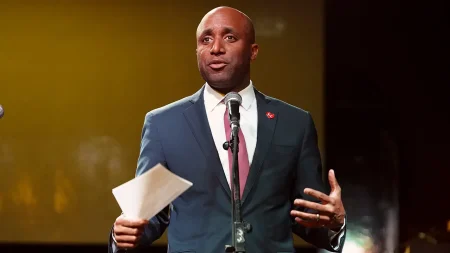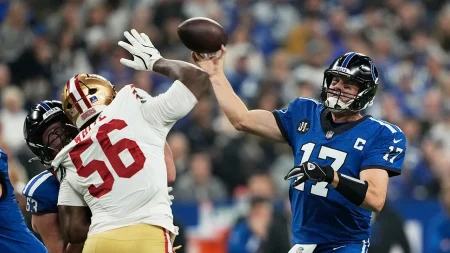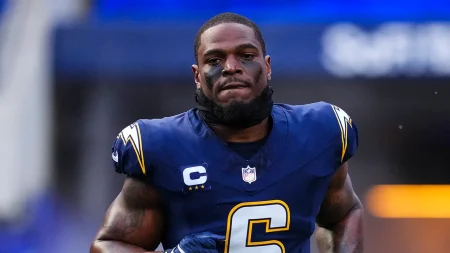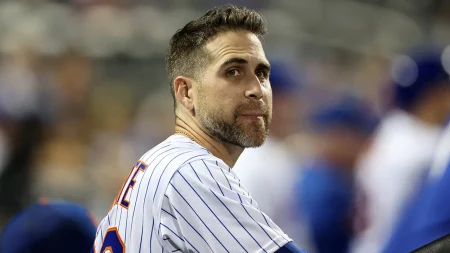The Australian Open 2023 men’s singles semi-final between Novak Djokovic and Alexander Zverev ended abruptly and disappointingly with Djokovic’s retirement due to a hamstring injury. This unfortunate turn of events brought a premature end to a highly anticipated clash between two tennis titans, leaving fans and commentators alike lamenting the lost opportunity to witness a full-fledged battle for a spot in the final. The incident underscored the unpredictable nature of professional sports and the physical toll it takes on even the most elite athletes.
Djokovic, the tournament favorite and defending champion, had been battling a hamstring issue throughout the tournament. While he managed to navigate through earlier rounds, the strain seemingly intensified during the semi-final. Despite displaying flashes of his signature brilliance and fighting spirit, Djokovic’s movement became increasingly restricted, hindering his ability to compete at his usual high standard. The injury became particularly noticeable in the latter stages of the second set, with Djokovic visibly struggling to cover the court and generate power on his shots. The eventual retirement, while understandable, cast a shadow over the proceedings.
Zverev, while advancing to the final, acknowledged the bittersweet nature of his victory. He expressed empathy for Djokovic, acknowledging the disappointment and frustration that comes with an injury-forced retirement, particularly in a Grand Slam semi-final. He recognized that the circumstances prevented a true contest and a fair determination of who was the better player on that day. The tennis world echoed this sentiment, recognizing the lost opportunity to witness a potentially classic encounter between two of the game’s most formidable players. The premature ending served as a stark reminder of the precarious nature of athletic performance and the ever-present risk of injury.
Djokovic’s retirement also sparked broader discussions about the physical demands of professional tennis and the challenges faced by players in managing their bodies throughout a grueling season. The incident brought to the forefront the importance of injury prevention, recovery strategies, and the difficult decisions athletes must make regarding their health and long-term careers. While the drive to compete at the highest level is paramount, the preservation of one’s physical well-being is equally crucial, necessitating a delicate balance between pushing one’s limits and exercising caution. The episode served as a valuable lesson for both players and aspiring professionals about the importance of listening to their bodies and prioritizing long-term health over short-term gains.
The situation also highlighted the role of medical support staff in professional tennis. The decisions made regarding injury management and player fitness are critical, often involving complex assessments and careful consideration of various factors. The responsibility to protect players from further harm and ensure their long-term well-being rests heavily on the shoulders of medical professionals. The incident underscored the importance of having a skilled and experienced medical team in place to provide expert advice and guidance to players navigating the physical challenges of the sport. The role of these professionals in supporting players’ health and careers cannot be overstated.
Finally, Djokovic’s retirement provided a poignant reminder of the transient nature of sporting success. Even the most dominant athletes are not immune to the realities of injury and the inevitable decline that comes with age. While Djokovic’s remarkable career has been defined by resilience and an unwavering pursuit of excellence, the incident served as a humbling reminder that even the greatest champions are susceptible to the vulnerabilities of the human body. The unexpected turn of events left fans and commentators reflecting on the fleeting nature of peak performance and the importance of appreciating the moments of brilliance while they last. The incident ultimately underscored the unpredictable and often unforgiving nature of professional sports.

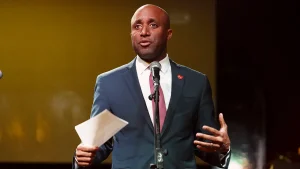
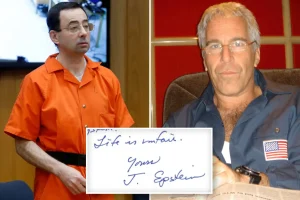


![Djokovic Retires Injured Against Zverev at [Tournament Name]](https://commstrader.com/wp-content/uploads/2025/01/4089237-82922388-2560-1440-1536x806.jpg)
